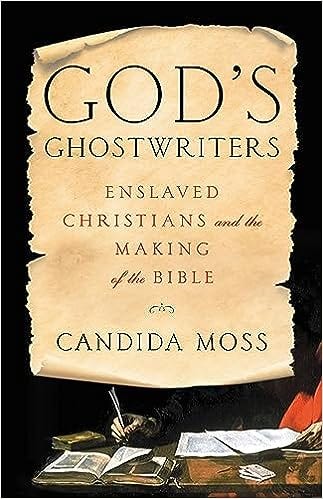“Collaboration does not have to be about corruption; it can be about cooperation.” (pg 78 of God’s Ghostwriters)
Have you ever stopped to wonder how the biblical texts were actually written down, and by who (or… whom)? In this episode of the podcast, I chat with Dr Candida Moss about her newest book, God’s Ghostwriters, which is about that very thing. In her own words, Candida is known as a bit of an iconoclast, and this book doesn’t disappoint in that regard, shedding light on (and raising questions about) the nature of inspiration.
Chapters
01:00 Introduction and Background
12:05 Enslaved Collaborators in the New Testament
19:23 Challenging Traditional Notions of Authorship
21:39 The Use of Shorthand in Ancient Writing
25:06 Interpretation and Alteration in the Transmission Process
33:41 The Role of Enslaved People in Biblical Texts
49:41 Challenging Traditional Interpretations
55:59 The Influence of Paratexts
01:01:25 Broadening Perspectives in Bible Reading
Sound Bites
"Enslaved collaborators wouldn't have made changes to the texts that they were receiving. That doesn't mean they're corrupting things, they might be improving them."
"There's no theological reason why you could not have more people. You can still have your authors. You just have more of them."
"Ancient shorthand seems to only have been learned by enslaved or formerly enslaved people because it takes two years to remember."
"The story of the paralytic... centers enslaved loyalty"
"Paratexts deeply influence... how we read and think about [the Bible]"
Keywords
Candida Moss, God's Ghost Writers, New Testament, enslaved collaborators, authorship, Bible, secretaries, copyists, divine inspiration, shorthand, interpretation, transmission process, enslaved people, biblical texts, interpretation, marginalized communities, Paul, Gospel narratives, sexual ethics, historical context











Share this post